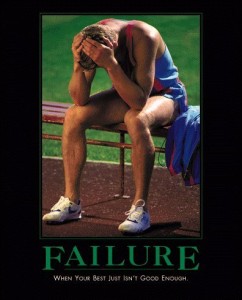
The Power Game
Surviving Tomorrow
Part Six
Tony Crisp
Money and structure are basic to most modern societies. Unfortunately money and structure both lead to men and women being constantly beaten and robbed as they make their journey on life’s highway. And as Martin Luther King said, ‘True compassion is more than flinging a coin to a beggar. It understands that a system producing beggars needs restructuring.’ Only a tiny minority live an advantageous life in such a society.
Since the dawn of civilisation the structure of society has been the domination of the many by the few. The domination has been economic, religious, political, and physical in the form of armed enforcement. This hierarchical structure still holds many of us in its grasp. As part of its mythology many people sell to others promises of escaping this domination by becoming rich and powerful. If such promises had any value all our friends would be millionaires, and none of the millionaires would be mentally ill or suicidal. Unfortunately the gap between the rich and the poor is widening. The awful thing is that such promises are only tempting you to be part of a toxic life style anyway. You are buying into the problem.
Strangely many so called primitive groups do not live in this hierarchy of rulers and subjects. They are not dominated by threats and systems of control. So it is not innate in humans to live within a system of inequality. It has come about by the careful manipulation through threat, fear, psychology and promises. Those in power struggle to maintain their position and pass it on to their children. The grasping for oneself is like a disease we are all infected with. History shows us the herding of humans into work situations that profited only a few, and still do. As one writer puts it, ‘BIG BUSINESS, THEOLOGY, the HEALING ARTS and POWER POLICIES all tell us that we are in terrific danger unless we extend ourselves to a great degree in order to try to gain what we are told we are not at the moment – you are -bad,- -ugly,- and you are not -in- and you are -abnormal.-‘ Thus we are turned into consuming automatons who willingly give our money to huge organisations selling us ways to be thinner, richer, more beautiful, more successful, attractive, sexy, and above all, happy!
Alcohol related deaths have more than doubled in the UK, and in Scotland the problem is so serious the government has introduced rulings attempting to change a national problem. Mental disorders are common in the United States and internationally. An estimated one in four adult Americans aged 18 and older suffer from a diagnosable mental disorder in any given year. Breakdown in our society is immense. Compare this to the Kalash tribal people who have no crime, all house doors are forever open, and whose happiness is not broken by the amount of mental illness and breakdown we experience in the west. Such comparison shows that our society is very sick, and we need to understand how to survive it.
But a few find their way to contentment and independent self sufficiency. How do they do it?
One of the huge obstacles in the way of change is what already exists. We have seen our financial and social system fail in giant ways. The financial system is not only a great way of creating stress and inequality, or grabbing power at the top, but it has also fallen over once again in an enormous way. Why do we try to prop up a system that is leaving people who are capable of work out of a job. Why not create something else. We are in the throes of a huge financial collapse. But if it were not for money all we have would be here. It is this weird system of money that holds us from food and a place to live if we are out of work. That sounds like a simple and childlike solution – but think about it. Think of the tragic scenes all over the world that lie at its roots.
If you are not in touch with your own core creative self, it is only a sign of how your upbringing and culture have brought about the inner defeat mentioned above. The future beckons you to wake up, to restore your own authority, to become independent and move beyond the old dependencies.
These are not untried pathways. Thousands are already living this new life, individually and in business and commerce. What it needs is a new vision, a new stance and response to everyday life.
An example of this is in the transformation that Ricardo Semler enabled in taking over his father’s business in 1982. At that time the business revenue was $4 million. In 2003 it was $212 million. Wikipedia reports that TIME magazine featured him among its Global 100 young leaders profile series published in 1994. The World Economic Forum also nominated him. The Wall Street Journal America Economia, the Wall Street Journal’s Latin American magazine, named him Latin American businessman of the year in 1990 and he was named Brazilian businessman of the year in 1990 and 1992. His first book, Virando a Propria Mesa (‘Turning Your Own Table’), became the bestselling non-fiction book in the history of Brazil. Later, translated as Maverick, it became an international bestseller, and was followed in 2003 by The Seven Day Weekend, which details how the early success led to even greater international growth. It also details the principles that enabled such achievement.
A summary of these gives us all we need to know about a way forward in business and as individuals in the world of work and commerce.
1. Once you say what business you are in you create boundaries for your employees. In that way you restrict their thinking and give them a reason to ignore opportunities and their own creative ideas.
2. The insistence that employees seek personal challenges and satisfaction before attempting to meet the company’s goals.
As Semler points out, such policies appear to fly in the face of established wisdom. But if you examine it, such wisdom is simply handed down custom from several thousand years of the master and slave/servant situation rather than researched insight. We are all in this life together, and the people high up wouldn’t be in that position without the work of the people they often dominate and underpay. We all have something to offer, and it is human and planetary life that is important, not a company.
3. Ask why. Then ask it again, and when you have the reply ask it a third time.
Most of what is done is habit, or as explained above, handed down customs based on past ages and social situations and needs. What the questions lead to – and it may at first be very uncomfortable to put the questioning into practice – is a more careful examination of what is being done, asked or thought. It calls us to put aside all the crystallised thinking and behaviour, along with the attitude of, ‘I said it so you have to do it – I am the boss!’ Semler sees such new habits as the key to longevity, growth and profit for the company.
4. Relinquish control. The place of work should be truly democratic. As part of this shift from control to democracy Semco fired two thirds of the senior managers when he took over the company. He handed over a lot of decisions to the work force who take part in selecting staff, amount paid, and time to work. He removed the formal divisions of labour such as the executive offices, and instituted work desks in a large area that any member of staff could use when needed. The connection with shareholders and market forces was severed as the employees are working for themselves and not other people who cream off their profits. Semco says of this, ‘We don’t need that. We generate enough of our own cash, and we are growing nearly 40 percent a year without public investments.
5. Work for today and not tomorrow. Don’t plan where you are headed, be fully creative today and the future forms itself. This means there are no formal or stated plans. Each day has its own needs and should be reassessed. This is one of those approaches to a paradox, because of course everything done influences where you are going, so needs to be fully explored. Semco comments on this by saying that although they frequently have brainstorming sessions, nothing is written down as settled. So the next meeting they start afresh without notes. That way, he says, you cannot fall into the trap of fixed assumptions. All variables are reconsidered. In this way additional flaws are uncovered or new angles found.
6. If possible do not sack anybody. It is people that are important not the company. Encourage them, if the company is large enough, to discover where they really excel in the company’s activities. Sometimes people move around for ages until they find what really excites them. Then they become a great benefit and addition to the workforce. Semco points out that when a person feels challenged and where their talents and interest are best served, their efforts translate into profit and growth.
8. Make the work place exciting by allowing people to unfold the depth and height of their talents and creativity. While this may foster some failures, it also opens doorways to many more successes than would have happened otherwise. This means encouraging employees to talk about and then implement their ideas. Obviously this includes discussion of how and why. It also links with the first of these ideas. That of not defining what the company does, and it involves synergy – the active merging of diverse activities into a whole that is greater than its parts. When there is not a tight top down implementation of rules and ‘how to’ instructions, evolution of such synergy can take place.
9. IQ is not the be all and end all of talent and productivity. Emotional balance and clear goals are often more important. Semco says the company looks for interpersonal skills and emotional and spiritual quotients. Such people often have active lives outside their work, contributing to the society they live in.
10. Carefully consider what success is, and don’t forget to ask why three times. And remember that any individual, and any company, is inextricable interwoven with the community it exists within, and with the family members and close extended family of each person. It is part of a web that extends around the world. Big businesses are often involved in underhanded kickbacks as ways of getting contracts. And is money the end result we seek? Recently the greed for more and more profit led to the unbelievable bank losses. Such things hurt you and I in the end, as we have seen with enormous price rises. You and I pay the price for such greed and dishonesty.
11. It’s a whole new world. Semco tells the story of one of his long time employees discovering that the cleaning women were using plastic cups instead of the china mugs supplied. When he asked them why they said the china cups were only for office workers.
The point here is that we are so conditioned to living in a paternalistic and hierarchical society that it takes an age to really grow into being democratic and honouring ones own contribution as important. The motto is, ‘Keep on keeping on.’ But of course, democracy means the cleaning women are free to use plastic cups if they really want to. Leon, who developed his own IT company, and who now employs a number of staff, discovered that he met a similar problem in being the boss. He found that our method of education trains us to be individual task oriented. We solve problems, undertake tasks alone. Then we come to a ‘teacher’ to see if we have done well. Instead of discussion and working as a team, the employees tend to see each other as competitors who are aiming for top marks. Success is seen as doing better than ones peers instead of working with them through discussion and teamwork. In nature and in life, the symbiotic approach in which skills are shared and mutual support occurs.
The greatest achievements have been done by mutual support. Even when a person ‘goes it alone’ they are of course never alone. The clothes they wear to reach Everest’s peak, the boat they sail alone around the world in, were not made by them. We are all interwoven in mutual dependence. Sometimes the cooperation is forced on us, nevertheless cooperation is still the fundamental power of achievement. When it is used with a good heart and awareness it can move into unsuspected realms.
Maybe many business people still believe they are involved in a cut-throat world, where business is a battleground. That is obviously true in some areas, but it doesn’t have to be that way. Productivity and survival can be found without it.
See Programmed – Inner World – Life’s Little Secrets


